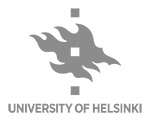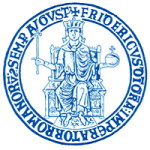University of Ioannina (EL) – Coordinator
The University of Ioannina was founded in 1964.  In 1970 became an independent Higher Education Institution, which grew rapidly in the coming years.
In 1970 became an independent Higher Education Institution, which grew rapidly in the coming years.
Today, the University of Ioannina includes 17 academic Departments which altogether number 13,523 undergraduate students. A number of organized postgraduate study programmes are on offer that combine taught and research elements both at Master’s and Doctoral level. Approximately 1,300 students are involved in full-time study mode progressing to a Master’s degree, while 2,217 students are currently pursuing their studies at Doctoral level.
University of Helsinki (FI)
 The University of Helsinki has the widest range of disciplines in Finland and it was established in 1640. The number of faculties is eleven. There are 38,000 degree students and 7,400 staff. The number of degrees taken each year is 4,200, of which 350 are doctorates.
The University of Helsinki has the widest range of disciplines in Finland and it was established in 1640. The number of faculties is eleven. There are 38,000 degree students and 7,400 staff. The number of degrees taken each year is 4,200, of which 350 are doctorates.
The University concentrates on high-level scientific research and researcher education. Scientific research is also the basis of the teaching provided by the University. The university operations support the development of society, as well as business and industry.
The University of Helsinki participates in more than half of the national Centres of Excellence in Research, elected by international scientific panels and the university has been invited to be a member of the League of European Research Universities, a co-operation body for the leading European research universities. According to international expert panels, also the teaching provided by the University of Helsinki is of a high European level.
Hellenic Open University (EL)
The Hellenic Open University (HOU) is a Public University founded by the Greek Government in 1992 and fully operational since 1997. Its prime mission is to offer university level education using distance learning methodology and to develop the appropriate material and teaching methods. An equally important aim is the promotion of scientific and applied research in the field of distance and lifelong learning. The Hellenic Open University (HOU) evolve around the following axes:
- The creation (development, production, publishing), access, usage (retrieval and sharing) and maintenance (storage, archiving, adaptation) of educational content and material (in printed or digital format),
- The development and evolution of distance learning methodologies, by exploiting the contemporary educational and pedagogical theories, as well as the technological developments that ensure their efficient application, and
- The development or application of software and other Information Society Technologies (IST) applications to support education
The staff of HOU has participated in various R&D projects, in the context of which it has developed job profiles, training guidelines, platforms, numerous software tools, databases and educational content and material. As a result, they have developed state-of-the-art know how in distance and lifelong learning methodologies and technologies.
For more information you can visit the official website of Hellenic Open University www.eap.gr.
University of Naples (IT)
 The University of Naples Federico II (UNINA) was established in 1224, which makes it one of the oldest publicly funded universities worldwide. Today UNINA is one of the largest educational institutions in Europe with about 85,000 students and 3,000 academics working in 26 departments. UNINA offers degree programmes in almost all academic disciplines leading to 73 bachelor level and 66 master level degrees together with 80 PhD programmes.
The University of Naples Federico II (UNINA) was established in 1224, which makes it one of the oldest publicly funded universities worldwide. Today UNINA is one of the largest educational institutions in Europe with about 85,000 students and 3,000 academics working in 26 departments. UNINA offers degree programmes in almost all academic disciplines leading to 73 bachelor level and 66 master level degrees together with 80 PhD programmes.
Based at the Department of Physics, the UNINA Research Group in Science and Mathematics Education (SERG) is committed to a number of activities, which are all inspired by an idea of teaching practice understood as a research work. The SERG work side-by-side with teachers, educators, researchers and administrators trying to build with all these actors a common ground for reflection on educational practice. This reflective practice is focused on revisiting the subject content of scientific disciplines for educational purposes, paying special attention to psychological and cognitive processes and to the construction of a widespread scientific culture.
The SERG has been involved as a partner in several EU-funded projects. Within the 7th framework programme the SERG coordinated the TRACES (Transformative Research Activities: Cultural difference and Education in Science) project
BEST Institut für berufsbezogene Weiterbildung und Personaltraining GmbH (AT)
BEST was founded in 1990 as an independent Austrian organisation for providing continuous training, vocational qualification and career services. Its main activities comprise the developm ent of innovative training programmes for young (+16) individuals and adults, many of them disadvantaged and with migration background, on continuous and vocational training, counselling, coaching and activation for job seekers and employees. The training schemes are client-oriented and based on both the specific needs of the labour market and the participants’ individual situations, skills and competences, previous experience and life circumstances.
ent of innovative training programmes for young (+16) individuals and adults, many of them disadvantaged and with migration background, on continuous and vocational training, counselling, coaching and activation for job seekers and employees. The training schemes are client-oriented and based on both the specific needs of the labour market and the participants’ individual situations, skills and competences, previous experience and life circumstances.
The institute offers eight training premises in Vienna and Lower Vienna regions for up to for up to 16.000 students per year (2014). The innovative training programmes for different target groups include own pedagogic and didactic approaches and materials, especially for social integration, empowerment, self-reflection and motivation, as well as ICT based methods.
Within its International Projects Department, BEST shows long experience of cooperation more than 140 European projects, both as coordinator and partner. BEST is focused on networking, exchange of experience and practices, peer learning, research and development of innovation, knowledge management and staff development.
Projects in Motion Ltd (PiM) is a Malta-based SME focusing on promoting environmental sustainability, renewable energy sources, and energy efficiency processes and products. PiM implements environmental sustainability and energy projects and conducts research for European and local government bodies, major companies and SMEs. Our aim is to promote renewable energy, energy efficiency and the intelligent use or reduction of energy requirements in Europe and the Mediterranean region through partnerships, awareness-raising, innovation and strategic action. Moreover we strive to participate or manage collaborative projects with distributed resources, which cover innovative issues related to energy and the environment, via transnational cooperation or directed towards capacity building for R&D and policy. Our objectives in the sustainability sector are to:
- provide technical, organizational and policy-related information on environmental sustainability and energy efficiency, products and technologies to governmental and non-governmental bodies, market players and the local population – increase the knowledge of the need for sustainable development;
- develop awareness for an intelligent use of energy;
- reduce waste and energy requirements through local initiatives;
- provide advice and analytical results on sustainability issues
- maximize the benefits arising from EU Community initiatives and Programmes for local authorities, development agencies, community groups, manufacturing and service industries, and all other relevant players in the Region.


